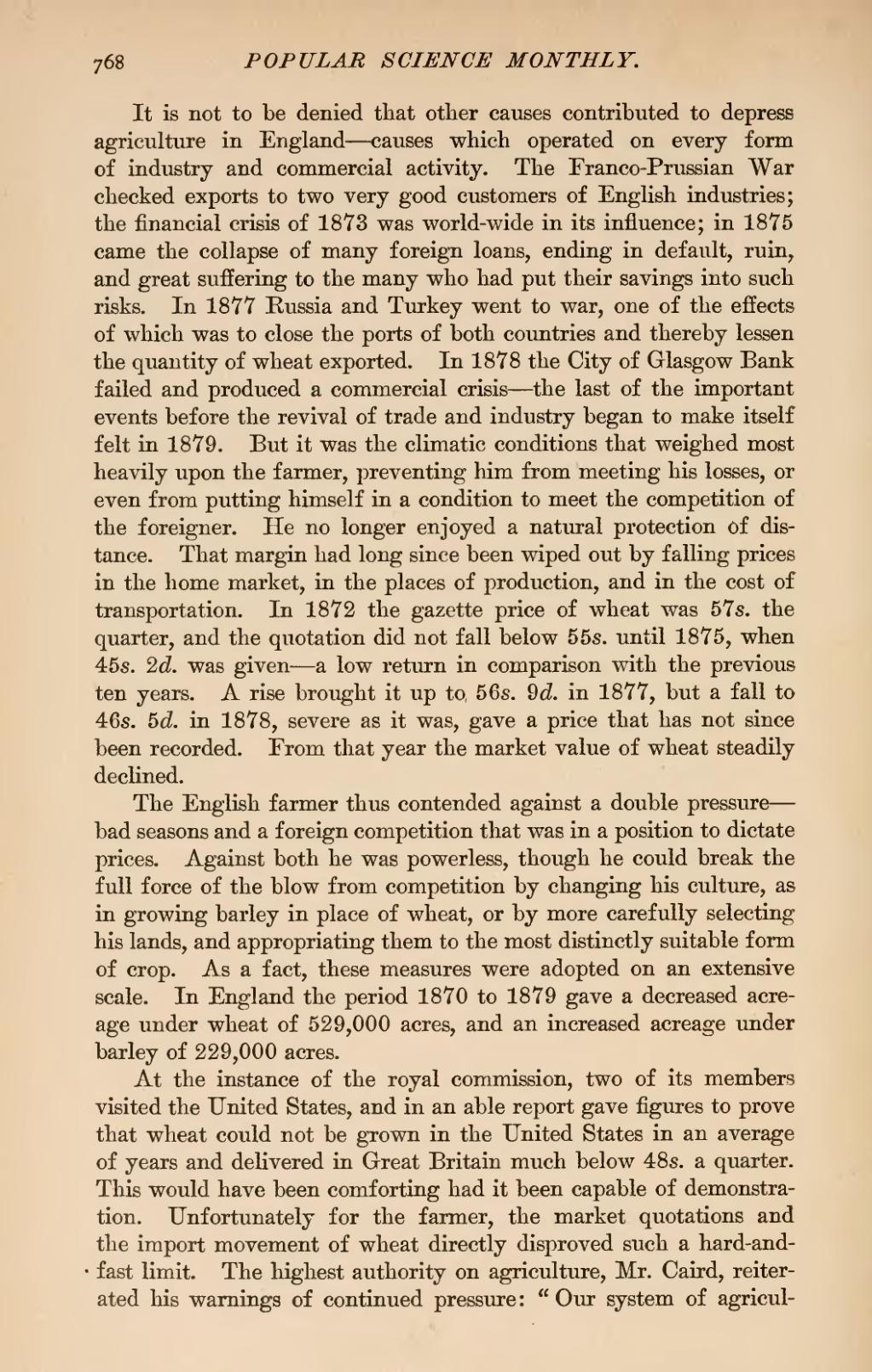It is not to be denied that other causes contributed to depress agriculture in England—causes which operated on every form of industry and commercial activity. The Franco-Prussian War checked exports to two very good customers of English industries; the financial crisis of 1873 was world-wide in its influence; in 1875 came the collapse of many foreign loans, ending in default, ruin, and great suffering to the many who had put their savings into such risks. In 1877 Russia and Turkey went to war, one of the effects of which was to close the ports of both countries and thereby lessen the quantity of wheat exported. In 1878 the City of Glasgow Bank failed and produced a commercial crisis—the last of the important events before the revival of trade and industry began to make itself felt in 1879. But it was the climatic conditions that weighed most heavily upon the farmer, preventing him from meeting his losses, or even from putting himself in a condition to meet the competition of the foreigner. He no longer enjoyed a natural protection of distance. That margin had long since been wiped out by falling prices in the home market, in the places of production, and in the cost of transportation. In 1872 the gazette price of wheat was 57s. the quarter, and the quotation did not fall below 55s. until 1875, when 45s. 2d. was given—a low return in comparison with the previous ten years. A rise brought it up to, 56s. 9d. in 1877, but a fall to 46s. 5d. in 1878, severe as it was, gave a price that has not since been recorded. From that year the market value of wheat steadily declined.
The English farmer thus contended against a double pressure—bad seasons and a foreign competition that was in a position to dictate prices. Against both he was powerless, though he could break the full force of the blow from competition by changing his culture, as in growing barley in place of wheat, or by more carefully selecting his lands, and appropriating them to the most distinctly suitable form of crop. As a fact, these measures were adopted on an extensive scale. In England the period 1870 to 1879 gave a decreased acreage under wheat of 529,000 acres, and an increased acreage under barley of 229,000 acres.
At the instance of the royal commission, two of its members visited the United States, and in an able report gave figures to prove that wheat could not be grown in the United States in an average of years and delivered in Great Britain much below 48s. a quarter. This would have been comforting had it been capable of demonstration. Unfortunately for the farmer, the market quotations and the import movement of wheat directly disproved such a hard-and-fast limit. The highest authority on agriculture, Mr. Caird, reiterated his warnings of continued pressure: "Our system of agricul-
